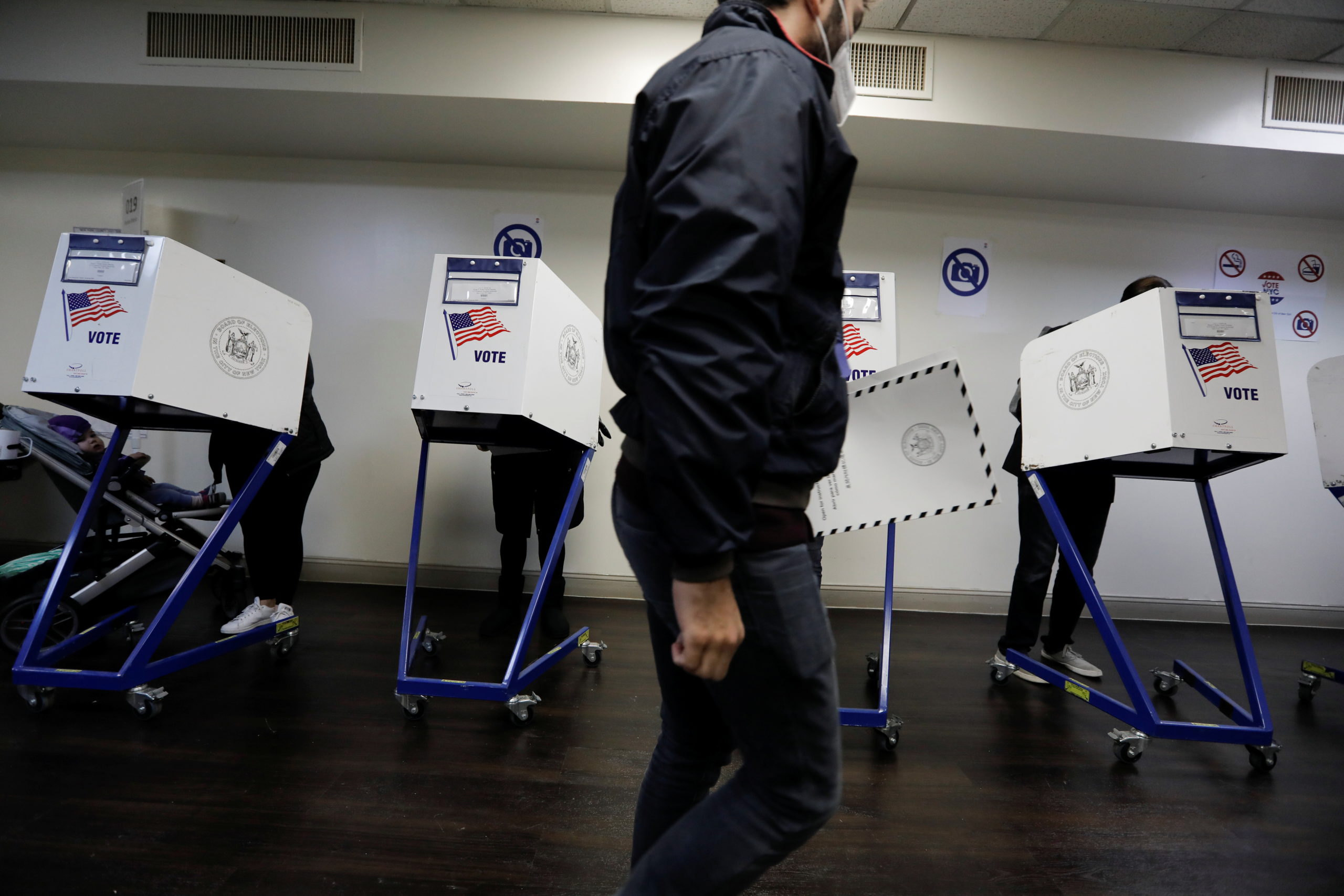An October 2023 Public Affairs Council/Morning Consult poll found that only 37% believe the 2024 elections will be both honest and open to all eligible voters. Democrats were more confident in the integrity of the election process, with 50% saying they believed the elections would be honest and open; just 35% of Republicans and 24% of independents agreed. This was a reversal from 2020 when Democrats had much greater concerns about election integrity.
A February 2024 Bipartisan Policy Center Morning Consult poll found that 69% are confident their votes will be counted accurately in the 2024 election. This includes majorities of Republicans (60% very or somewhat confident), Independents (59%), and Democrats (85%). Only 50% of Republicans express confidence that votes will be counted accurately at the national level compared with 66% at the local level—a gap of 16 percentage points.
On April 19, 2024, the Trump campaign and Republican National Committee (RNC) announced a 100,000-person strong election integrity program to “stop Democrat attempts to circumvent rules.” According to the release, so far this cycle, the RNC has engaged in 82 election integrity lawsuits in 25 states. Every single battleground state is operating its own “Election Integrity Hotline.” In addition, attorneys will be stationed at every target processing center where mail ballots are tabulated, focusing on the battleground states.
An April 8 Washington Post piece “New voting laws in swing states could shape the 2024 election” analyzed information from the Voting Rights Lab on how voting law changes could impact certain battleground states. Michigan Democrats pushed for nine days of early voting, all mail ballots will have prepaid return postage, and every community will have at least one drop box.
North Carolina Republicans pushed for voters to show identification and a new absentee ballot deadline. Courts will also decide whether to allow a law to go into effect that would reshape the state’s election boards and could result in fewer early voting sites. (RELATED: STEVE PAVLICK: Democrats Dominate Again)
Georgia Republicans passed a law to limit handouts of food or water to those waiting in line to vote. It also limits ballot where ballot drop boxes can be placed while expanding early-voting opportunities in most counties.

Voters fill out ballots in voting booths in the New York City election at a polling location in the Manhattan borough of New York, U.S., November 2, 2021. REUTERS/Mike Segar
During the 2020 election in Pennsylvania, mail ballots postmarked by Election Day but received up to three days after that were counted. In 2024, they must be received by Election Day. Pennsylvania’s law requires voters to write the date they return their mail ballots on an envelope, and an appeals court recently ruled ballots could not be counted if they came in undated envelopes or had the wrong date on them. That will mean more ballots will get rejected this fall.
In Wisconsin, after 2020, conservatives on the state Supreme Court concluded that state law does not allow the use of drop boxes and barred their use for 2022 and beyond. However, last year, liberals took control of the court, and they recently agreed to revisit that ruling. A decision is expected by the summer.
In Arizona, Democratic Governor Katie Hobbs has resisted efforts by state Republican lawmakers to schedule a ballot measure this fall that would greatly restrict mail voting for future elections. Voting by mail has long been popular in Arizona, so whether such a measure could pass remains to be seen.
In 2020, Nevada officials used emergency provisions in response to the pandemic to facilitate early voting. They sent mail ballots to all voters, established at least one drop box in every county, allowed third parties to collect ballots from voters, and counted absentee ballots that election officials received after Election Day if they were postmarked by then.
In 2021, Democratic leaders in the state made those policies permanent, meaning they will be in effect this fall.
Steve Pavlick is a Partner & Head of Policy at Renaissance Macro and a former Treasury official.
The views and opinions expressed in this commentary are those of the author and do not reflect the official position of the Daily Caller News Foundation.
All content created by the Daily Caller News Foundation, an independent and nonpartisan newswire service, is available without charge to any legitimate news publisher that can provide a large audience. All republished articles must include our logo, our reporter’s byline and their DCNF affiliation. For any questions about our guidelines or partnering with us, please contact licensing@dailycallernewsfoundation.org.


